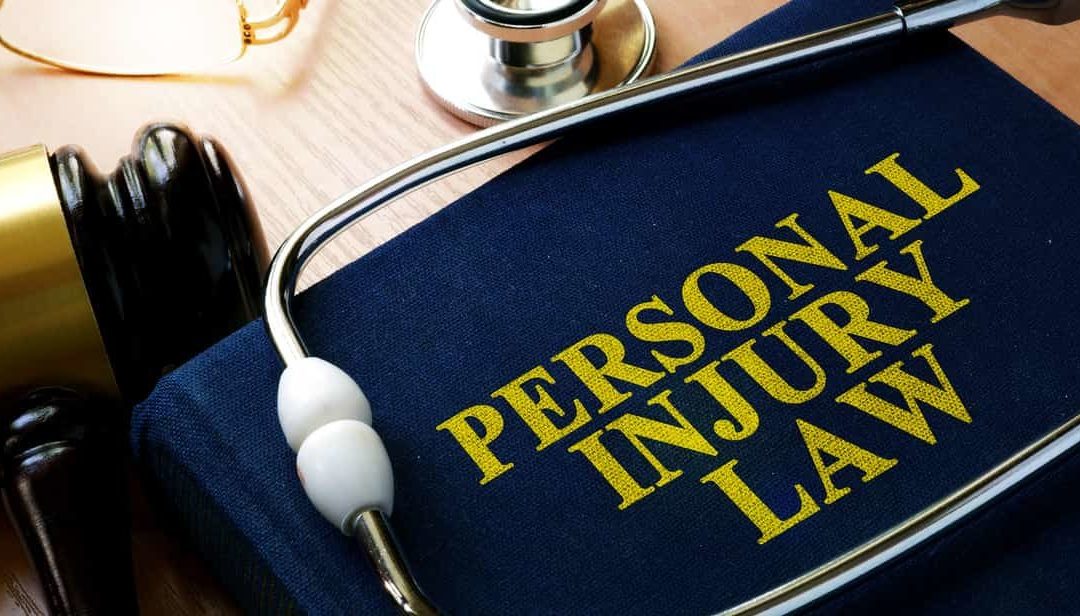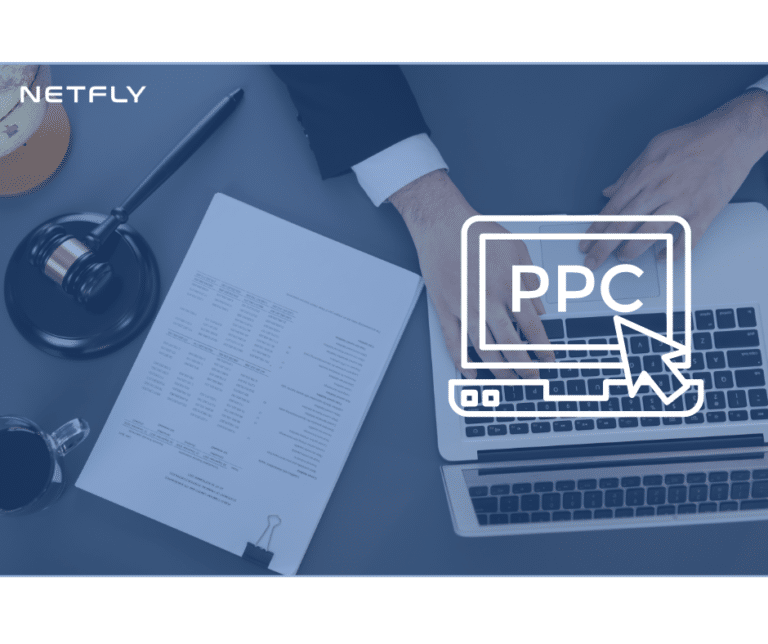You might not realize that SEO for personal injury law firms demands a unique approach compared to typical marketing strategies. The difference stems from a need to navigate strict advertising regulations, focus on highly specific legal keywords, and tailor content that addresses urgent legal concerns. By emphasizing local SEO and leveraging client testimonials, these firms aim to build trust and credibility in a highly competitive field. Curious about what sets this apart and how these elements work together to drive success? Stay tuned to explore the nuances and critical tactics involved.
Key Takeaways
- Personal injury law firm SEO prioritizes local keywords for geographic visibility and client acquisition.
- Compliance with state and federal legal marketing regulations is crucial for personal injury law firm SEO.
- Trust signals like client testimonials and legal awards are essential for establishing credibility in personal injury law firm SEO.
- Content creation for personal injury law firms often includes case studies and client experiences to build trust.
- Personal injury law firm SEO frequently targets crisis-driven searches with optimized, mobile-friendly content.
Understanding Legal SEO
Understanding Legal SEO is essential for personal injury law firms aiming to enhance their online visibility and attract potential clients. Unlike standard marketing strategies, legal SEO requires a detailed, nuanced approach tailored to the legal industry. One of the key components you can’t overlook is effective link building. This involves acquiring high-quality backlinks from reputable sites, which enhances your site’s authority and improves search engine rankings. Make sure that these links are from relevant legal directories, legal blogs, or respected news sites, as Google values context and relevance.
Equally important are meta descriptions. These short summaries of your web pages appear in search engine results and can have a significant impact on your click-through rates. Crafting meta descriptions that are both compelling and keyword-rich is vital. For example, a meta description for a personal injury page should include phrases like ‘experienced personal injury lawyer’ and ‘free consultation’ to attract potential clients actively searching for legal assistance.
Incorporating these elements into your SEO strategy can set your firm apart from competitors. By focusing on specific legal SEO components like link building and meta descriptions, you’ll enhance your online presence and attract the right clients to your practice.
Navigating Advertising Regulations
While optimizing your legal SEO is essential, it’s equally important to navigate advertising regulations to guarantee your marketing efforts are compliant and effective. Personal injury law firms face unique compliance challenges, particularly because legal advertising is heavily regulated. You must make sure that every ad placement adheres to both state and federal guidelines to avoid penalties and maintain your firm’s reputation.
First, familiarize yourself with the American Bar Association’s rules on lawyer advertising, as well as your state’s specific regulations. These rules cover various aspects, including misleading information, client testimonials, and claims about past successes. Violating these regulations can lead to serious repercussions, including fines and disbarment.
When considering ad placement, be meticulous about where and how your ads appear. Online platforms like Google and social media have their own sets of rules, often requiring legal disclaimers. For instance, pay-per-click (PPC) campaigns must clearly identify your firm and avoid making guarantees.
Furthermore, regularly audit your advertising content to ensure ongoing compliance. Staying up-to-date with regulatory changes is vital. By carefully addressing these compliance challenges, you can create a robust marketing strategy that not only enhances your online presence but also stands up to legal scrutiny.
The Importance of Local SEO
When you’re optimizing your personal injury law firm’s online presence, focusing on local SEO is essential. Targeting local keywords guarantees your firm appears in searches relevant to your geographical area, making it easier to attract clients nearby. Additionally, maintaining and optimizing your Google My Business profile can greatly boost your visibility in local search results.
Targeting Local Keywords
Utilizing the power of local SEO is essential for personal injury law firms aiming to attract clients in their immediate geographic area. Your first step should be in-depth keyword research. Focus on terms potential clients in your locality are searching for, such as ‘personal injury lawyer [City]’ or ‘car accident attorney [Neighborhood].’ These long-tail keywords will help you connect with people specifically looking for legal assistance within your service area.
Competitor analysis is another critical component. Identify other law firms ranking high in local searches and scrutinize their strategies. What keywords are they targeting? How are they structuring their content? Use this information to refine your own approach, ensuring you’re not only catching up but surpassing them in search rankings.
Incorporate these local keywords naturally within your website’s content, including blog posts, service pages, and FAQs. Don’t forget meta descriptions and title tags; they should reflect your targeted local keywords as well. By doing so, you’ll improve your visibility in local searches, making it easier for potential clients to find you when they need legal help the most. Precision and attention to local detail can make all the difference in a competitive legal market.
Google My Business
To maximize your local SEO efforts, it is crucial to optimize your Google My Business profile meticulously, making sure it accurately represents your personal injury law firm’s services and location. Profile optimization is not just about filling in basic details; you need to provide a thorough overview of your practice areas, office hours, and contact information. Include high-quality images of your office and team to build trust and credibility.
Customer reviews play a pivotal role in local SEO. Encourage satisfied clients to leave detailed, positive reviews on your Google My Business profile. These reviews not only boost your search rankings but also build social proof, making potential clients more likely to choose your firm. Responding to reviews, both positive and negative, shows that you value client feedback and are committed to excellent service.
Additionally, keep your profile updated. Any changes in your services, office hours, or contact details should be promptly reflected. Regularly posting updates or legal insights can also improve your visibility. By focusing on profile optimization and leveraging customer reviews, you make sure that your personal injury law firm stands out in local searches, driving more traffic and potential clients to your practice.
Crafting Trustworthy Content
How can you guarantee that your content stands out as reliable and authoritative in the highly competitive field of personal injury law? One effective way is by incorporating client testimonials and detailed case studies into your content. These elements serve as powerful social proof, showcasing your firm’s successes and the positive outcomes you’ve achieved for clients. When potential clients see firsthand accounts of how you’ve helped others in similar situations, they’re more likely to trust your expertise.
To craft trustworthy content, make sure that your client testimonials are authentic and specific. Avoid vague praise; instead, include detailed accounts of the client’s journey, the challenges faced, and how your firm provided solutions. This not only builds trust but also illustrates your legal acumen.
Similarly, well-documented case studies can highlight your firm’s proficiency. Outline the legal strategies employed, the hurdles overcome, and the eventual results. By doing this, you demonstrate your firm’s depth of knowledge and meticulous approach to personal injury cases.
Additionally, verify that all content is legally accurate and up-to-date. Use plain language to explain complex legal concepts, making your content accessible and understandable. This attention to detail will further solidify your reputation as a trustworthy and knowledgeable personal injury law firm.
Building Authority and Credibility
To build authority and credibility for your personal injury law firm, focus on publishing expert legal content that demonstrates your knowledge and experience. Trust signals like client testimonials, case results, and professional endorsements can further reinforce your firm’s reputation. Combining these elements effectively will enhance your SEO strategy and distinguish you from competitors.
Expert Legal Content
Crafting expert legal content isn’t just about showcasing your knowledge—it’s about establishing your law firm’s authority and credibility in the competitive field of personal injury law. Your audience wants to see that you have the expertise to handle complex cases and that you stay updated with the latest legal trends and precedents.
Start by conducting expert interviews with seasoned attorneys or legal scholars. These interviews can provide valuable insights and position your firm as a thought leader. Discuss recent changes in personal injury law, emerging trends, or complicated legal scenarios. By sharing this knowledge, you not only educate your audience but also demonstrate your firm’s depth of understanding.
Additionally, incorporating detailed case studies into your content strategy can greatly enhance your credibility. By showcasing past cases, outlining the legal challenges faced, and explaining how your firm successfully navigated these issues, you provide tangible proof of your expertise. Potential clients are more likely to trust a firm that transparently displays its track record of success.
In essence, expert legal content is a cornerstone of effective SEO for personal injury law firms. It offers a dual benefit: enhancing your online presence while solidifying your reputation as a reliable and knowledgeable legal authority.
Trust Signals
Building authority and credibility in the personal injury law field hinges on strategically implementing trust signals throughout your online presence. One of the most effective ways to establish trust is through client testimonials. Potential clients want to know that others have had positive experiences with your firm. Make sure these testimonials are prominently displayed on your website, preferably on the homepage and dedicated testimonial pages. Authentic, detailed reviews can greatly impact a potential client’s decision to contact you.
Additionally, being listed in reputable lawyer directories can enhance your credibility. Directories like Avvo, Martindale-Hubbell, and Super Lawyers are respected in the legal community and often appear high in search engine results. Ensure your profiles on these platforms are complete and up-to-date, showcasing your qualifications, awards, and client reviews.
Another critical trust signal is showcasing any legal awards or recognitions your firm has received. Badges from recognized institutions can be prominently displayed on your website to instill confidence in your expertise. Don’t overlook the importance of a professional, user-friendly website design. A well-designed site makes a strong first impression and conveys professionalism.
Targeting Crisis-Driven Searches
In the field of personal injury law, effectively targeting crisis-driven searches can greatly enhance your firm’s visibility to potential clients urgently seeking legal assistance. When individuals face sudden accidents or injuries, they often turn to search engines for immediate solutions. Your strategy should prioritize critical management and emergency response to capture these high-intent queries.
To begin, focus on creating content that addresses the immediate needs and concerns of accident victims. Use precise keywords like ’emergency personal injury lawyer’ or ‘immediate legal help after car accident.’ These terms align with the urgent nature of crisis-driven searches.
Next, make sure that your website is optimized for mobile users. Many people in crisis situations use their phones to search for help, so a mobile-friendly site can greatly improve user experience and response rates. Additionally, integrating live chat features can provide instant assistance, further enhancing your emergency response capabilities.
Lastly, local SEO is essential. Victims often look for nearby legal help, so include geographic-specific keywords like ‘personal injury lawyer near me’ to capture local searches. By focusing on these strategies, your firm can effectively reach those in immediate need of legal assistance.
Measuring Success in Legal SEO
After targeting crisis-driven searches effectively, it’s important to measure the success of your legal SEO efforts to make sure that your strategies are generating tangible results. Start by examining your website’s bounce rate. A high bounce rate could indicate that visitors aren’t finding the information they need or that your content doesn’t engage them. Lowering this metric often involves improving page load times, refining content quality, and ensuring mobile-friendliness.
Next, focus on conversion metrics. For a personal injury law firm, conversions might include contact form submissions, phone calls, or live chat interactions. Utilize tools like Google Analytics to track these actions. By doing so, you can identify which pages or keywords are driving the most valuable traffic.
Additionally, pay attention to organic search rankings and traffic. Regularly review the performance of targeted keywords and adjust your SEO strategy accordingly. Long-tail keywords specific to personal injury law can often yield higher conversion rates.
Lastly, client reviews and testimonials can serve as qualitative metrics. Positive feedback often correlates with effective SEO practices, as satisfied clients are likely to have found you through a well-optimized search process. By combining these quantitative and qualitative measures, you’ll have a thorough understanding of your legal SEO success.
Frequently Asked Questions
How Do Online Reviews Impact a Personal Injury Law Firm’s Seo?
Online reviews play a crucial role in your personal injury law firm’s SEO. Authentic reviews and client testimonials enhance credibility and trust, which can greatly boost your search rankings. Encourage genuine feedback from satisfied clients to optimize your online presence and validate the authenticity of reviews.
What Role Does Mobile Optimization Play in Legal Seo?
Mobile optimization is essential in legal SEO. Page speed and responsive design directly impact user experience, making visitors stay longer. If your site loads quickly and adapts to devices, you’ll rank higher, attracting more potential clients.
Are There Specific Keywords That Work Best for Personal Injury Law Firms?
Think of keyword research and competitive analysis as finding the right ingredients for a recipe. Personal injury law firms should focus on terms like “car accident lawyer” and “slip and fall attorney” to attract relevant clients effectively.
How Often Should a Personal Injury Law Firm’s Website Content Be Updated?
You should update your personal injury law firm’s website content regularly. Ideally, blog frequency should be weekly to maintain content relevancy. This approach keeps your information current and helps improve your SEO and client engagement.
What Are the Best Social Media Platforms for Promoting a Personal Injury Law Firm?
Have you ever wondered if Facebook and Instagram are the best for client engagement? They are, especially with video marketing. LinkedIn is also vital for a legally-informed audience seeking detailed-oriented services like personal injury law.
Conclusion
In personal injury law firm SEO, you can’t just rely on standard marketing strategies. It’s like traversing a tightrope—you need precise keywords, local SEO mastery, and compliance with legal regulations to succeed. By building authority through quality backlinks and crafting trustworthy, crisis-driven content, you’ll stand out in the crowded legal landscape. Remember, the right strategy not only attracts clients but also establishes your firm as the go-to expert in times of need.










